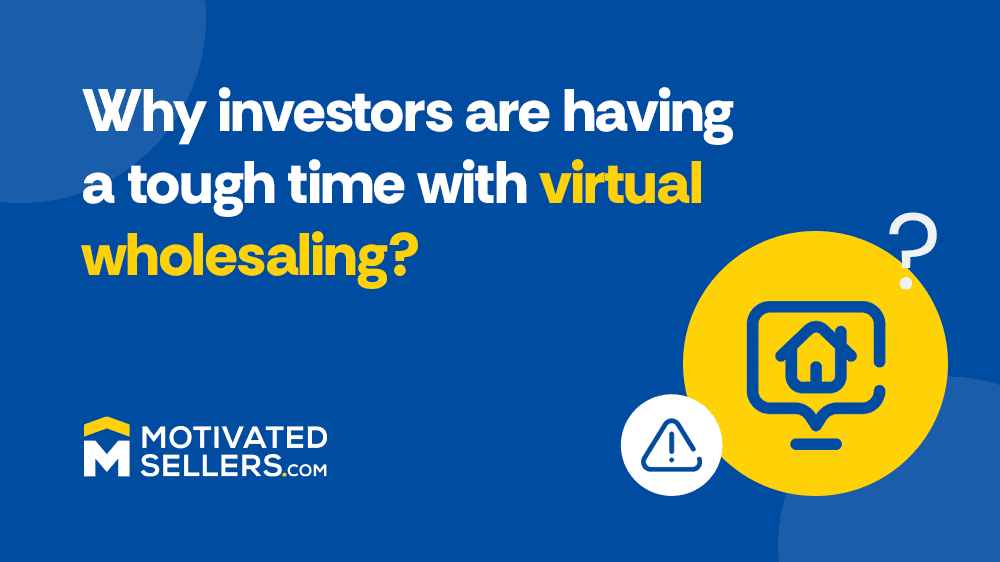

Virtual wholesaling used to be a low-barrier entry to real estate investing. The technical advantage allows you to build a scalable business. Without a physical office, you can find motivated seller leads online, assign the contract without ever stepping into the property, and earn your assignment fee.
Legislations passed a few months ago could shake this whole wholesaling industry, including virtual wholesaling. In this article, we will discuss virtual wholesaling:
HB 1081 will go into effect starting January 1, 2026, in Washington. The new policy applies to off-market and direct-to-seller properties. It applies to retail buyers, buy-and-hold investors, flippers, and wholesalers. It is applicable to all forms of marketing: search engine optimization, social media, direct mail, or knocking on the door. Here is exactly what the law says:
This new law will go into effect on July 1, 2026. According to HB 7287, all wholesalers must register with the DCP (Department of Consumer Protection) to protect consumers. Your wholesaling contracts must allow a cancellation window of 3 days. The seller can cancel the agreement within this timeframe. To be on the safe side, structure agreements with clear deadlines for assignments and closings to avoid legal risk.
In Maryland, a recent law has been passed that went into effect on October 1, 2025. HB 124 and SB 160 require a transparent approach to wholesaling in Maryland whenever a residential property of less than 4 units is involved:
The bill (HB 1125) in North Dakota went into effect on August 1, 2025. According to this new law:
The state of Oklahoma has strict regulations for wholesalers. The law (SB 1075) will go into effect on November 1, 2025.

Tennessee is one of those strict states regarding wholesaling. Wholesalers in Tennessee must create acquisition contracts with the intention to assign and spell out their equitable interest to the buyer. The disclosure must appear in bold, large-font print within the agreement. A cause of action may be brought within two years after the contract’s execution if the disclosures are not made.
States like Illinois, Pennsylvania, Kentucky, and even South Carolina require a license before you can wholesale a deal. In Illinois, you can do one deal per year without a license. Of course, that doesn’t help wholesalers who are doing 5–10 deals in a month.
In Pennsylvania (Act 52, formerly SB 1173), wholesalers are now classified under the broker or salesperson definition. That means you need a license and explicit disclosure about the nature of the transaction. You must also provide cancellation rights to sellers under certain conditions.
The state of South Carolina clearly defines wholesaling as a brokerage activity under HB 4754. Publicly marketing someone else’s real estate without owning it is considered brokering and requires a license.
Virtual wholesalers are often operating in multiple markets. That means you need to adjust contract language and stay up-to-date regarding laws in various states. It also means that you could get a real estate license, but it’s not enough to cover your operation in various states.
Real estate wholesaling has become different. To be on the safe side, all marketing must be tied to the contract. It’s best not to advertise the property.
Always include comprehensive disclosure clauses in your contracts. They ensure transparency and protect you from legal complications down the road. Double closings work well in highly regulated states. They involve two separate transactions, which helps you avoid legal gray areas. Combined, these strategies can help you build a sustainable wholesaling business.
Wholesaling is legal in all 50 states of America, as you are transferring your interest in a contract. But there are rules about licensing, disclosures, and marketing. That’s where things can go south if you don’t understand the laws.